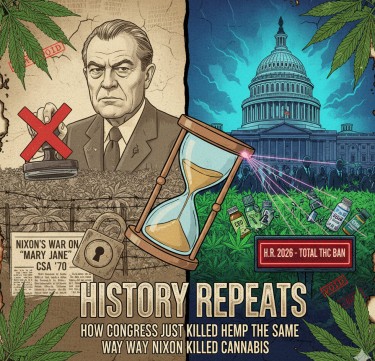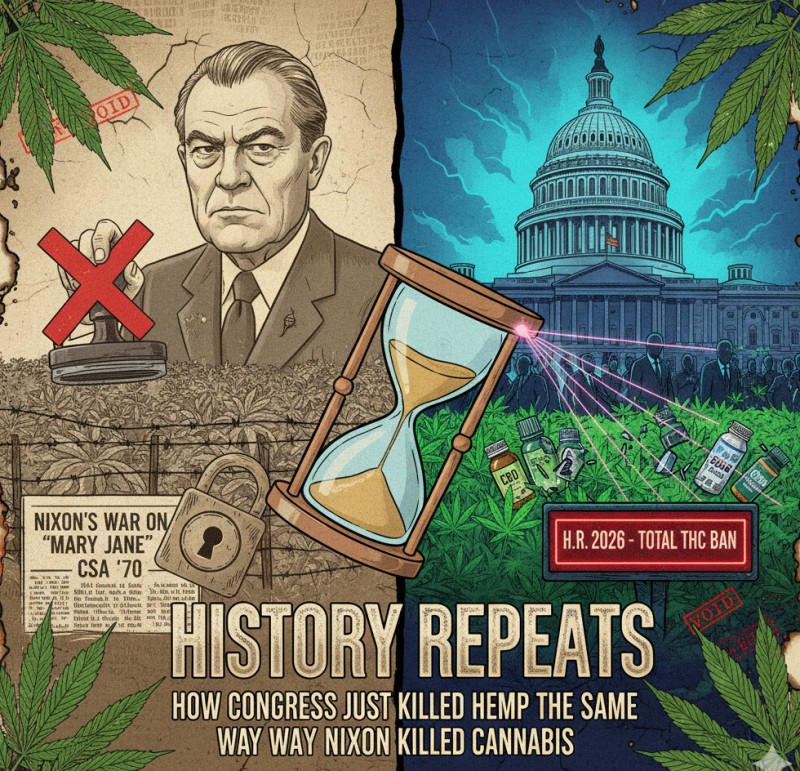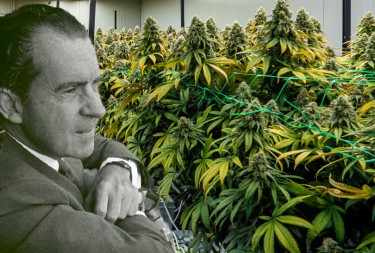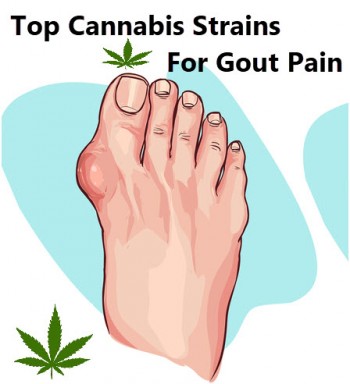
On November 13, 2025, buried deep within a government funding bill designed to prevent shutdown, Congress slipped in language that will obliterate a $28.4 billion industry employing tens of thousands of Americans. The hemp provision—added just one day before Senate passage—fundamentally rewrites federal hemp law without hearings, debate, or transparency. Sound familiar? It should. This is exactly how cannabis ended up criminalized in the first place.
In 1970, the Controlled Substances Act slipped through Congress with cannabis classified as Schedule I—no accepted medical use, high potential for abuse, dangerous as heroin. This classification happened despite the Shafer Commission's own research showing cannabis was relatively harmless and prohibition unwarranted. The classification was political, not scientific. It was rushed through as part of broader legislation without adequate debate. And it destroyed an entire industry overnight while empowering law enforcement to wage war on American citizens for possessing a plant.
Fifty-five years later, we're watching the same playbook executed with surgical precision. The 2018 Farm Bill legalized hemp—cannabis containing 0.3% or less delta-9 THC—creating a legal market for CBD products, textiles, and agricultural materials. Entrepreneurs seized this opportunity, building businesses around hemp-derived cannabinoids that technically complied with federal law while producing intoxicating effects similar to marijuana. The industry boomed, reaching $28-30 billion annually and proving that Americans could responsibly consume cannabis products when legally available through regulated markets.
But rather than embrace this success—rather than regulate it properly, tax it appropriately, and learn from what works—Congress just killed it. The new language excludes from hemp's definition any viable seeds from plants exceeding 0.3% total THC (including THCA), effectively banning the genetic foundation of the modern hemp industry. After a 365-day grace period ending November 2026, anyone importing, exporting, or transporting these seeds commits federal drug trafficking.
This isn't closing a loophole. This is destroying an industry that demonstrated unequivocally that legal cannabis doesn't cause societal collapse. And it's being done by the same government that claims to support small business, states' rights, and personal freedom—rhetoric that evaporates the moment it conflicts with the interests of law enforcement, Big Pharma, and the alcohol industry.
The Bill: Prohibition Smuggled Through in Government Funding
The provision appears on page 64 of the government funding bill, nestled between budget allocations and continuing resolutions. Most lawmakers probably didn't read it. Most Americans didn't know it existed until after passage. This is legislati
ve cowardice—implementing major policy changes through procedural manipulation rather than transparent debate.
What the bill does:
Redefines hemp to explicitly exclude viable seeds from cannabis genetics that would produce plants exceeding 0.3% total THC. Previously, the 2018 Farm Bill focused on delta-9 THC concentration, creating what the bill's supporters now call a "loophole" that allowed high-THCA genetics to remain technically legal as hemp.
Criminalizes seed trade for non-compliant genetics after the grace period. Any seeds carrying genetics that could produce plants above the new threshold become Schedule I marijuana, making their import, export, and interstate transport federal crimes punishable as drug trafficking.
Wipes out 95% of the hemp market according to industry estimates. The U.S. Hemp Roundtable stated the language will force "patients, seniors and veterans who rely on hemp products to break federal criminal law to acquire them."
Nullifies state hemp regulations in states like Kentucky, Louisiana, Maine, and Utah that created frameworks for regulating hemp-derived intoxicants. As Senator Rand Paul noted, "The bill before us nullifies all these state laws."
Gives FDA 90 days to publish lists of naturally occurring cannabinoids and those with THC-like effects, setting up additional restrictions on compounds the agency deems problematic.
The justification offered is public safety: hemp products lack consistent regulation, contain unknown contaminants, and sometimes resemble candy attractive to children. These concerns are legitimate. The solution is regulation, not prohibition. But prohibition is what Congress chose because regulation requires work, compromise, and acknowledging that cannabis products can be safely consumed when properly overseen.
Why This Matters: The Industry That Proved Prohibition Wrong
The hemp-derived cannabinoid industry wasn't supposed to exist. It emerged from creative interpretation of the 2018 Farm Bill's language, capitalizing on the distinction between delta-9 THC (what the law measured) and total THC including precursors like THCA. Entrepreneurs realized they could produce intoxicating products that technically complied with federal law, and they built a multi-billion dollar market doing so.
This market proved several things prohibition advocates spent decades denying:
Americans can consume cannabis responsibly. Despite hysterical predictions, legal access to hemp-derived THC products didn't create epidemic addiction, widespread psychosis, or societal breakdown. Millions of people used these products without incident—for recreation, medical relief, sleep aid, anxiety management. The sky didn't fall.
Regulated markets work better than black markets. While concerns about contamination and labeling are valid, hemp products sold through legitimate retail channels are vastly safer than black market alternatives that dominated during prohibition. Legal markets create accountability. Businesses have reputational incentives to provide safe products. Consumers can seek recourse for defective goods. None of this exists in black markets.
Tax revenue and economic development are real. The $28-30 billion hemp industry generated tax revenue, created jobs, supported agricultural communities, and demonstrated economic potential that prohibition destroyed. Small businesses, farmers, and entrepreneurs built livelihoods around legal hemp products. Congress just killed those livelihoods with legislative language most Americans never saw coming.
States can implement effective oversight. Kentucky, Minnesota, and other states created robust regulatory frameworks for hemp-derived intoxicants—age restrictions, potency limits, labeling requirements, testing protocols. These regulations worked. They provided consumer protection while allowing market access. The federal government could have adopted similar approaches nationally. Instead, they chose prohibition.
The hemp industry's success is precisely why it's being destroyed. It demonstrated that cannabis legalization works, that people can be trusted to make their own choices, and that prohibition is unnecessary. This threatens every interest that benefits from cannabis remaining illegal: law enforcement agencies dependent on drug war funding, pharmaceutical companies selling alternatives to cannabis medicine, alcohol producers competing for consumers, and politicians who built careers on tough-on-drugs rhetoric.
Trump's Betrayal: The Fascist Regime Shows Its True Colors
Let's be direct about what's happening here. Donald Trump, who campaigned as anti-establishment, who promised to end government overreach, who claimed to support states' rights and small business, just signed legislation destroying a $30 billion industry through midnight procedural manipulation. The "drain the swamp" president is the swamp.
Trump's administration—despite his supposed anti-war, anti-establishment credentials—has proven to be indistinguishable from every authoritarian regime that preceded it. He bombs boats in international waters without evidence or oversight. He designates criminals as terrorists to bypass constitutional protections. He expands surveillance through programs like Palantir integration. He crushes industries that don't serve establishment interests. And his followers cheer because their guy is doing it.
The hemp ban fits perfectly within this pattern. Trump talks about personal freedom while empowering federal law enforcement to raid businesses selling legal hemp products. He claims to support small business while destroying an industry built by entrepreneurs. He pretends to oppose Big Pharma and Big Government while implementing policies that protect pharmaceutical monopolies and expand government control.
And now we have new Epstein-related allegations emerging—documents suggesting Trump's involvement in the very trafficking networks he claims to fight against. Is it any wonder he's so adamant about keeping things quiet? Is it surprising that an administration mired in credible accusations of the most heinous crimes would enthusiastically crush legal industries while protecting cartels through policies that drive consumers back to black markets?
I thought Nixon was bad—targeting political enemies through drug enforcement, deliberately criminalizin
g cannabis to undermine antiwar movements and Black communities. But Trump is making Nixon look like an amateur. Nixon at least had the decency to create commission studies before ignoring their findings. Trump doesn't bother with that pretense. He just implements authoritarian policies and trusts his base to rationalize whatever he does.
The increasingly fascist nature of this regime should alarm everyone. When government can destroy entire legal industries through procedural manipulation buried in budget bills, when constitutional protections are optional based on executive designation of "terrorists," when extrajudicial killings are policy and surveillance infrastructure expands without meaningful oversight, we're not living in a constitutional republic anymore. We're living in an authoritarian state that maintains democratic aesthetics while operating through fascist mechanisms.
The Cartel Enrichment Program
Here's the beautiful irony: while Trump bombs alleged drug boats and claims to fight cartels, his policies systematically enrich them. The hemp ban is the latest example.
When Congress criminalizes hemp-derived cannabinoids, where do consumers go? They don't stop using cannabis—they just buy from black markets. Every person who was purchasing legal hemp products from legitimate retailers will now either stop consuming or find illegal alternatives. Most will choose the latter, driving billions in revenue toward cartels and underground operators.
This is Economics 101: prohibition creates black markets. Legal markets destroy them. By killing the legal hemp industry, Congress is handing billions in annual revenue to criminals. The cartels couldn't ask for better policy if they wrote it themselves.
Trump's entire drug war approach follows this pattern. Bomb boats, build walls, increase enforcement—none of it reduces drug availability, but all of it increases profitability for traffickers who successfully avoid interdiction. Higher enforcement costs mean higher prices, higher prices mean higher profit margins, and higher profits mean more resources for corruption, violence, and territorial control.
Meanwhile, Trump claims to fight cartels while implementing the exact policies that empower them. It's either stunning incompetence or deliberate malice. Given his administration's track record and mounting evidence of personal involvement in criminal enterprises, malice seems more likely.
What Now: Resist, Disobey, Overgrow
Here's where we stand: Congress just criminalized hemp seeds that were legal last week. They gave industry one year to comply before federal drug trafficking charges become reality. They destroyed a $30 billion market that proved prohibition unnecessary. They did it through procedural manipulation without debate or transparency. And the president who promised to be different signed it without hesitation.
So what do we do?
First, understand your duty. When laws are unjust, when they serve no legitimate public interest, when they exist solely to enrich entrenched interests at the expense of freedom and opportunity, you have no moral obligation to obey them. Civil disobedience isn't just acceptable—it's necessary.
Plant seeds. If you're in the hemp industry, if you have access to genetics that will be criminalized, secure them. Preserve them. Distribute them. The government doesn't get to erase genetic diversity because politicians decided it threatened the wrong interests. These plants existed before prohibition and they'll exist after. Your job is ensuring they survive the latest assault.
Overgrow the government. The only effective response to prohibition is making it unenforceable through mass noncompliance. Cannabis won't stay illegal if millions of Americans simply ignore the law. Hemp-derived products won't disappear if enough people continue producing and consuming them. Enforcement relies on voluntary compliance. Don't comply.
Support businesses resisting. When hemp companies face prosecution for maintaining legal operations, support them. Crowdfund legal defenses. Publicize prosecutorial overreach. Make every enforcement action cost political capital.
Vote these fuckers out. Every senator who voted for this bill, every representative who let it pass, every politician who enabled this betrayal deserves electoral consequences. Primary them. General them. Replace them with anyone who won't systematically destroy industries through midnight legislative manipulation.
Prepare for what's coming. This won't end with hemp. The precedent being set—that established legal industries can be criminalized overnight through procedural tricks—will be used again. Cannabis businesses in legal states should expect federal crackdowns. Expect expanded surveillance. Expect the full authoritarian apparatus turned against industries that threatened the wrong people.
Document everything. When hemp businesses face prosecution, when patients lose access to medicine, when farmers go bankrupt, when communities suffer from this policy—document it. Build evidence. Create records. The people responsible need to be held accountable, if not legally then historically.
This is where we are. The government everyone voted for—the anti-establishment outsider who was supposed to drain the swamp and restore freedom—just killed a $30 billion industry to protect pharmaceutical profits and empower cartels. He did it through the same legislative tricks used to criminalize cannabis in 1970. He's making Nixon look like an amateur while his administration drowns in Epstein allegations and implements increasingly fascist policies.
Fuck these politicians. Fuck their unjust laws. Fuck the interests they serve at our expense. Plant seeds. Overgrow the government. Make prohibition unenforceable through mass noncompliance. And remember every name attached to this betrayal when election season arrives.
The war on hemp is the war on cannabis is the war on freedom. It's the same war it's always been—the powerful crushing the powerless to maintain control. The only question is whether we'll keep accepting it or finally decide we've had enough.







